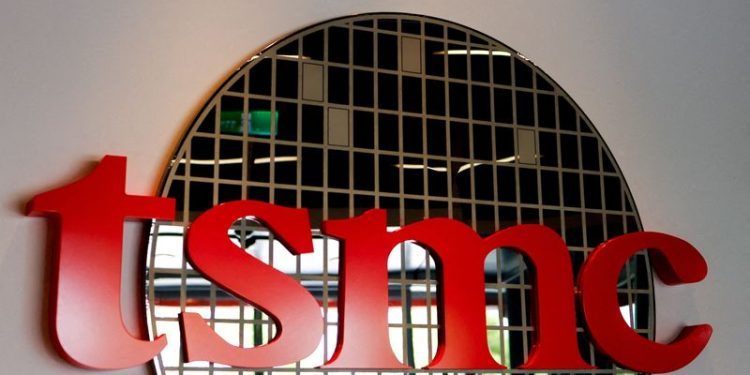By Karen Freifeld and Fanny Potkin
(Reuters) – Taiwan Semiconductor Manufacturing Company suspended shipments to China-based chip designer Sophgo after a chip it made was found on a Huawei AI processor, according to two people familiar with the matter.
Sophgo had ordered chips from TSMC that matched the one found on Huawei’s Ascend 910B, the people said. Huawei is restricted from buying the technology to protect U.S. national security. Reuters could not determine how the chip ended up on the Huawei product.
Sophgo, which is affiliated with cryptocurrency mining equipment company Bitmain, did not respond to requests for comment. TSMC declined comment. Huawei did not immediately respond to a request for comment. The U.S. Department of Commerce said it was aware of reports of potential violations of U.S. export controls but could not comment on whether any investigation is ongoing.
Tech research firm TechInsights discovered the TSMC chip on Huawei’s Ascend 910B when it took apart the multi-chip processor, a different source told Reuters on Tuesday. Alerted to the finding, about two weeks ago TSMC notified the U.S., the source said.
About the same time, TSMC also halted shipments to a client, Reuters reported on Wednesday, citing a Taiwan official who said the suspension came after the company discovered a chip it supplied to the client ended up in a Huawei product.
TSMC alerted Taiwan and U.S. authorities, and began a detailed investigation, the official said. But the official did not name the client, which the latest sources have identified as Sophgo. The Information tech news outlet also reported the name earlier on Saturday.
TSMC, the world’s largest contract chipmaker, said earlier this week it had not supplied Huawei since mid-September 2020, and that it “proactively communicated” with the Commerce Department regarding the matter.
“We are not aware of TSMC being the subject of any investigation at this time,” the company statement said.
Shenzhen-based Huawei said in a statement on Tuesday it has not produced any chips via TSMC after the U.S. imposed new export rules on the company in 2020.
In 2020, the U.S. expanded its authority to stop shipments of foreign-produced items to Huawei that are the direct product of U.S. technology or software, including TSMC’s chips.
Before then, TSMC supplied chips for Huawei’s Ascend series, sources told Reuters earlier this year. Its Ascend 910B, released in 2022, is viewed as the most advanced AI chip available from a Chinese company.
In August, the Research Institute for Democracy, Society and Emergency Technology (DSET) in Taiwan reported that Bitmain, which it described as a leading Chinese integrated circuit (IC) design enterprise and supplier of cryptocurrency mining machines, was “aiming to challenge the AI chip market dominance of Nvidia (NASDAQ:NVDA) and AMD (NASDAQ:AMD).”
The DSET report described Sophgo as a Bitmain affiliate.
Sophgo was co-founded by Micree Zhan, who also co-founded Bitmain, according to a corporate registration database.
The company also communicated with the Federal Communications Commission in 2023 using a Bitmain email address and the name Xiamen Sophgo Technologies Ltd.
In 2021, prosecutors raided Bitmain’s operations in Taiwan and accused two Bitmain affiliates of illegally recruiting Taiwanese semiconductor engineers and illegally conducting R&D, according to a statement by the New Taipei prosecutors office.
Four Taiwanese defendants pleaded guilty and were given fines, according to the statement.
Sophgo’s website says it has R&D centers in more than 10 cities in China and other countries.





